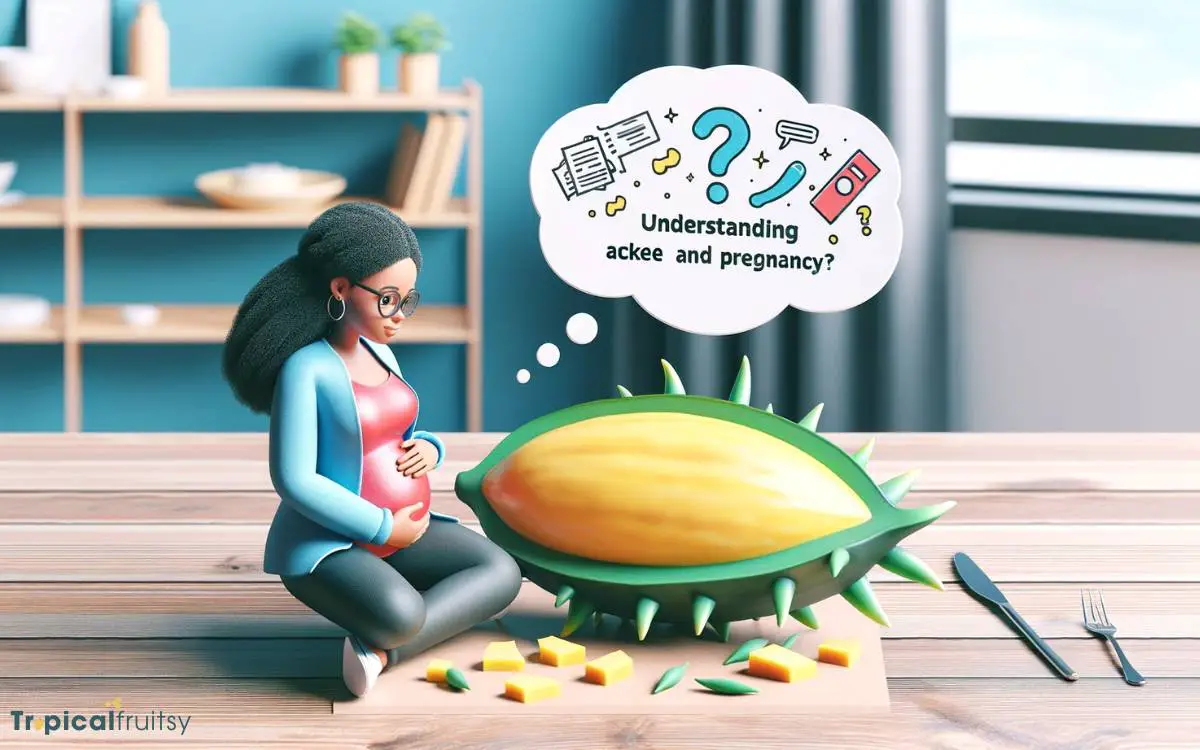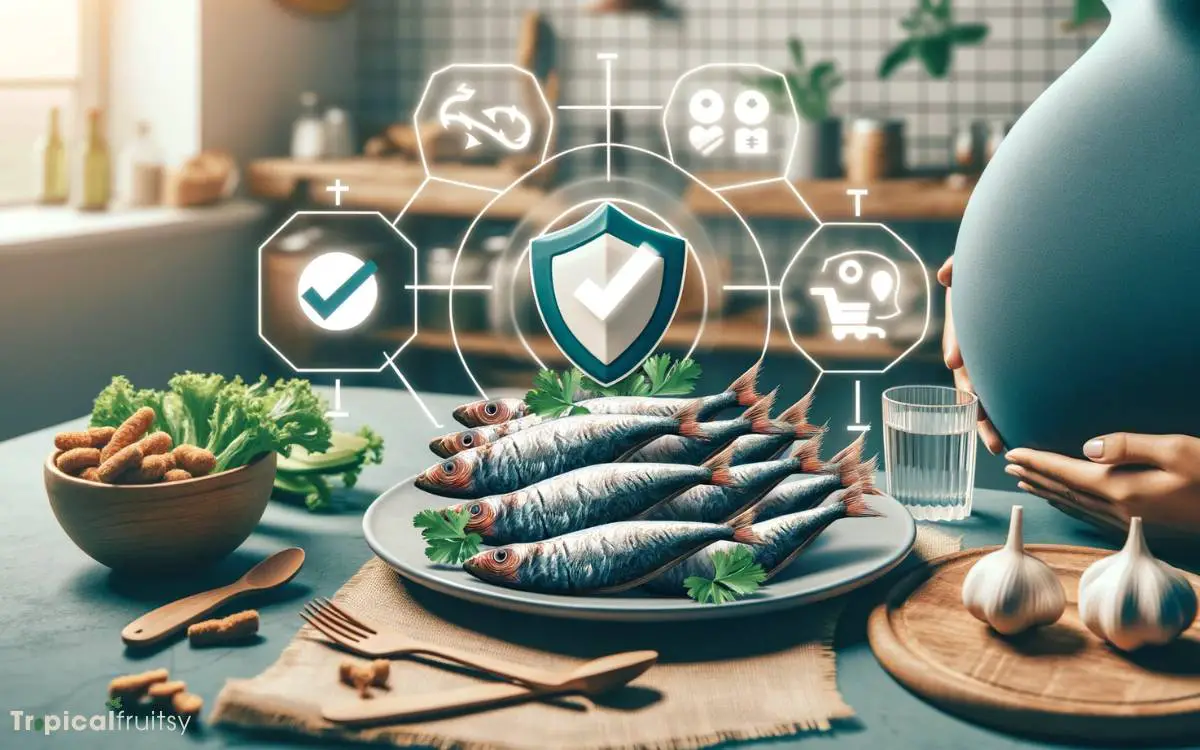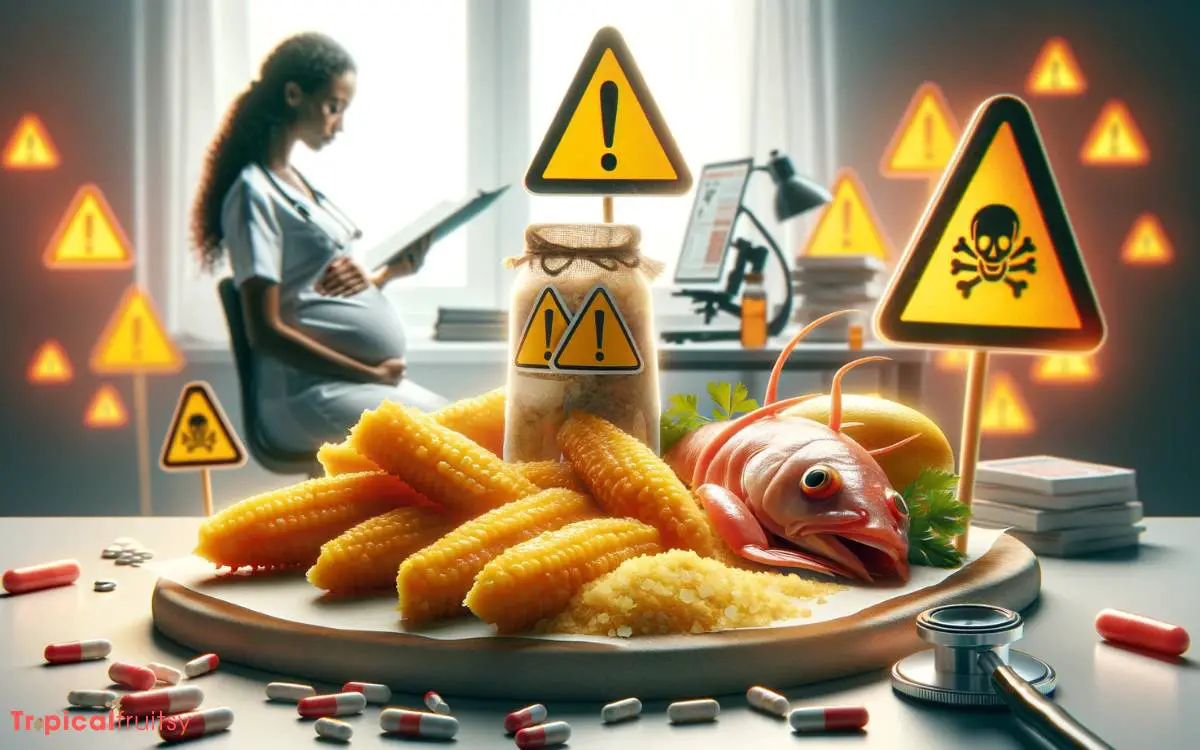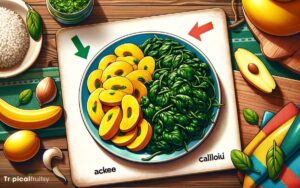Can I Eat Ackee and Saltfish While Pregnant? Explained!
Ackee and saltfish, a traditional Jamaican dish, is a subject of inquiry for expectant mothers mindful of their dietary choices.
When considering the consumption of ackee and saltfish during pregnancy, it is crucial to evaluate both the nutritional benefits and potential risks associated with these ingredients.
Ackee, when properly ripened and prepared, is safe and offers valuable nutrients. However, unripe or improperly prepared ackee contains hypoglycin A, which can be harmful.
Saltfish, on the other hand, provides protein but must be consumed in moderation due to its high sodium content.
Pregnant women should consult healthcare professionals to navigate the balance between cultural dietary practices and medical advice, ensuring the well-being of both mother and child.
This discussion will delve into the safe preparation methods, the nutritional aspects, and the risks to consider when including ackee and saltfish in a prenatal diet.

Key Takeaway
Ackee and Saltfish in Pregnancy: Safety Tips
| Aspect | Details |
|---|---|
| Ackee Safety | Fully ripe and properly prepared ackee is generally safe. Unripe or improperly prepared ackee contains harmful toxins. |
| Saltfish Sodium Content | Saltfish is high in sodium, which should be moderated during pregnancy. Consider low-sodium alternatives or reduce the amount used. |
| Nutritional Benefits | Ackee is rich in beneficial nutrients like fatty acids and Vitamin A. Saltfish provides protein and omega-3 fatty acids. |
| Risk of Foodborne Illness | Ensure both ackee and saltfish are cooked thoroughly to reduce the risk of foodborne illnesses, which are a concern during pregnancy. |
| Doctor’s Advice | Consult with a healthcare provider before consuming ackee and saltfish during pregnancy, as dietary recommendations can vary. |
Understanding Ackee and Pregnancy

One must exercise caution when consuming ackee during pregnancy due to the potential health risks associated with improperly prepared fruit.
Ackee, when unripe or improperly prepared, contains hypoglycin A, a toxin that can lead to a condition known as Jamaican Vomiting Sickness (JVS), which is particularly dangerous for pregnant women and their unborn children.
Symptoms of JVS include severe vomiting, hypoglycemia, and even fatal complications. Therefore, it is crucial for pregnant women to ensure that the ackee they consume is fully ripe and has been prepared correctly, with the toxic parts removed.
Safe Consumption of Saltfish

Safety is paramount when considering the inclusion of saltfish in a prenatal diet, as it poses distinct considerations that must be meticulously addressed. Saltfish, or dried and salted cod, is a traditional Caribbean delicacy often paired with ackee.
When included responsibly in a pregnancy diet, it can offer nutritional benefits, yet, caution is advised:
- Sodium Content: Monitor intake to prevent excessive sodium consumption, which could lead to elevated blood pressure.
- Proper Desalination: Ensure thorough soaking and boiling to remove excess salt.
- Moderation: Consume in moderate amounts to balance nutrient intake.
- Freshness: Choose fresh, well-preserved saltfish to avoid the risk of foodborne illnesses.
Adhering to these guidelines can help pregnant individuals safely enjoy the cultural and nutritional aspects of saltfish.
Nutritional Benefits Explained

Amidst the necessary precautions, ackee and saltfish, when properly prepared, can be a nutritious addition to a pregnancy diet, offering a valuable source of protein, omega-3 fatty acids, and other essential nutrients.
Protein is crucial for the growth and repair of tissues, which is vital during pregnancy. Omega-3 fatty acids, especially DHA, support fetal brain and eye development.
Additionally, ackee is rich in dietary fiber, vitamin C, and important B vitamins like niacin, which are integral for energy metabolism and maintaining healthy skin and nerves.
Saltfish, being a preserved form of cod or similar fish, also provides vitamin B12 and selenium, contributing to a healthy immune system and thyroid function, respectively.
This combination of nutrients can support the overall health of both the mother and the developing fetus.
Potential Risks to Consider

Despite its nutritional benefits, consuming ackee and saltfish during pregnancy carries specific risks. This is primarily due to the potential presence of harmful toxins in improperly ripened ackee and high sodium levels in saltfish.
Pregnant women should be aware of the following concerns:
- Hypoglycin A, a naturally occurring toxin in unripe ackee, can lead to severe vomiting and even fatal hypoglycemia, known as Jamaican Vomiting Sickness.
- Excessive salt intake from saltfish can increase the risk of hypertension, a condition associated with pre-eclampsia and other pregnancy complications.
- High sodium can also contribute to fluid retention and swelling, which are common issues during pregnancy.
- Overconsumption of saltfish may lead to an imbalance of dietary nutrients, overshadowing the benefits of other healthy foods in a prenatal diet.
Expectant mothers should consult with healthcare providers to make informed dietary choices.
Is It Safe to Eat Ackee and Saltfish While Breastfeeding?
Yes, eating ackee while breastfeeding is generally safe as long as the fruit is fully ripe and properly prepared. Ackee and saltfish are a popular Jamaican dish, and when cooked and consumed in moderation, it can be a nutritious part of a breastfeeding mother’s diet. Always consult a healthcare professional for specific dietary advice.
Preparing Ackee and Saltfish Safely

To mitigate the risks associated with consuming ackee and saltfish during pregnancy, it is crucial to adhere to strict preparation guidelines.
Ackee, a fruit native to West Africa, must be fully ripened before consumption, as unripe ackee contains hypoglycin A, a toxin that can lead to Jamaican vomiting sickness.
It is paramount to ensure that only the yellow arilli of the ackee are consumed, discarding the black seeds and any remnants of the red membrane, which are toxic.
Saltfish, typically salt-cured cod or other white fish, needs thorough soaking and boiling to remove excess salt, which is especially important for pregnant individuals due to the increased risk of hypertension.
Always source your ackee and saltfish from reputable suppliers and prepare them with care to minimize health risks.
Conclusion
The careful consumption of properly prepared ackee and saltfish may offer nutritional benefits to pregnant individuals when integrated into a balanced diet.
However, one must weigh these benefits against the potential risks, including hypertensive effects and toxicity from improperly prepared ackee.
Is it not the responsibility of expectant mothers to prioritize both their health and that of their unborn child by making informed dietary choices? A consultation with a healthcare provider is highly recommended before indulgence.






